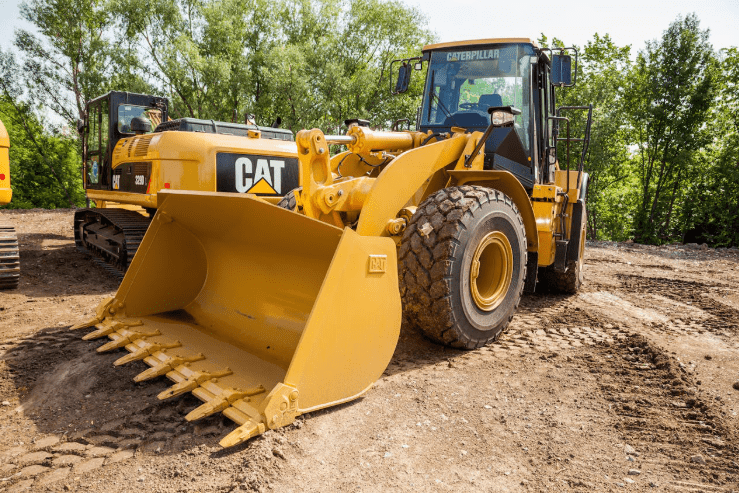How to Choose the Right Compaction Equipment for Your Business

Efficient waste management is a critical component of running any business. Overflowing dumpsters, high disposal costs, and wasted space can all hinder operations and add unnecessary expenses. The solution? Investing in the right compaction equipment. Choosing the appropriate machine not only saves money but also improves operational efficiency, promotes sustainability, and ensures compliance with local regulations. In this guide, we’ll walk you through everything you need to consider when selecting compaction equipment for your business.
Understand Your Business Needs
The first step in choosing the right compaction equipment is to clearly understand your business’s waste management needs.
- Type of Waste: Determine whether your business generates general trash, recyclables, industrial debris, or specialized waste like e-waste or liquids. Different types of waste require different equipment.
- Volume: Assess how much waste is generated daily, weekly, or monthly. High-volume businesses may need a stationary compactor, while moderate-volume operations might benefit from a self-contained unit.
- Operational Goals: Identify your primary objectives—space-saving, cost reduction, sustainability, or regulatory compliance. Knowing your goals helps guide your selection process.
Understanding these needs ensures that the compaction equipment you choose will effectively meet your business requirements.
Types of Compaction Equipment
There are several types of compaction equipment, each suited for specific applications:
- Stationary Compactors: Designed for high-volume waste generation, stationary compactors are installed in a fixed location and handle large amounts of waste efficiently. They’re ideal for commercial facilities, manufacturing plants, and multi-tenant buildings.
- Self-Contained Compactors: These units are compact, mobile, and perfect for businesses producing moderate waste with a high liquid content. They are typically used by retail stores, restaurants, and small warehouses.
- Balers: Balers compress recyclables such as cardboard, paper, and plastics, making storage and transport easier. They’re a great solution for businesses with significant recycling needs.
- Shredders: Shredders are essential for secure destruction of sensitive documents or electronic waste. They protect confidential information while reducing volume.
Choosing the right type of compaction equipment depends on your waste type, volume, and intended purpose.
Consider Space and Location Constraints
Before purchasing or renting equipment, evaluate where it will be placed:
- Indoor vs. Outdoor: Some compactors are designed for indoor use, while others can withstand outdoor conditions. Consider factors like weather exposure, ventilation, and noise levels.
- Accessibility: Ensure the equipment is easy to access for daily waste disposal and routine maintenance. Adequate space for trucks or waste removal services is also crucial.
- Placement Planning: Proper placement reduces workflow interruptions and keeps the facility safe and organized.
Taking space and location into account prevents installation challenges and maximizes efficiency.
Budget and Cost Considerations
Cost is a significant factor when selecting compaction equipment. It’s important to consider:
- Initial Purchase or Rental Costs: Evaluate upfront costs versus long-term benefits.
- Operational Costs: Factor in electricity, maintenance, and service contracts.
- New vs. Used Equipment: Used compaction equipment can be a cost-effective solution, but ensure it meets your needs and is in good condition.
Balancing upfront investment with long-term savings ensures you choose equipment that’s both practical and economical.
Material Handling and Volume Requirements
The capacity and throughput of your compaction equipment must match your business’s waste production:
- Weight and Type of Waste: Heavy or dense waste requires machines built for higher loads.
- Frequency of Disposal: Determine how often waste is collected and ensure your equipment can handle peak volumes without causing downtime.
- Capacity Considerations: Choosing equipment with adequate capacity prevents overloading, reduces maintenance issues, and keeps operations running smoothly.
Correctly matching your compactor to your waste profile is key to maximizing efficiency.
Environmental and Regulatory Compliance
Choosing compaction equipment that complies with local waste disposal regulations is essential:
- Environmental Benefits: Energy-efficient machines and proper recycling solutions contribute to sustainability goals.
- Regulatory Compliance: Using appropriate equipment ensures that your business meets waste management standards and avoids fines.
- Green Practices: Many modern compactors are designed to minimize environmental impact while maximizing efficiency.
Selecting equipment with compliance and eco-friendly features demonstrates responsibility and protects your business.
Maintenance, Durability, and Support
Durable, well-maintained equipment provides long-term value:
- Longevity: Invest in machines built to withstand heavy use and harsh conditions.
- Routine Maintenance: Regular inspections and servicing reduce downtime and prolong the life of your compactor.
- Manufacturer Support: Choose suppliers who offer warranties, maintenance plans, and responsive customer service to ensure your equipment continues operating at peak performance.
Prioritizing quality and support minimizes disruptions and maximizes return on investment.
Choosing a Reputable Supplier
Finally, selecting the right compaction equipment provider is just as important as choosing the machine itself:
- Check Credentials: Ensure the supplier is licensed, insured, and experienced.
- Review Past Projects: Look at client testimonials and completed installations.
- Transparent Pricing: Request detailed estimates and clarify all costs upfront.
- Professional Installation: A reputable provider will handle setup and training, ensuring your equipment is used safely and efficiently.
Working with a reliable supplier ensures your compaction equipment is a valuable, long-term addition to your business.
Conclusion: Make an Informed Investment
Selecting the right compaction equipment is more than a purchase—it’s an investment in your business’s efficiency, cost savings, and sustainability. By understanding your needs, evaluating space and capacity requirements, and working with a reputable supplier, you can ensure that your waste management operations run smoothly and effectively.
Investing in the right compaction equipment today streamlines your operations, reduces costs, and provides long-term benefits, making your business cleaner, greener, and more efficient.





